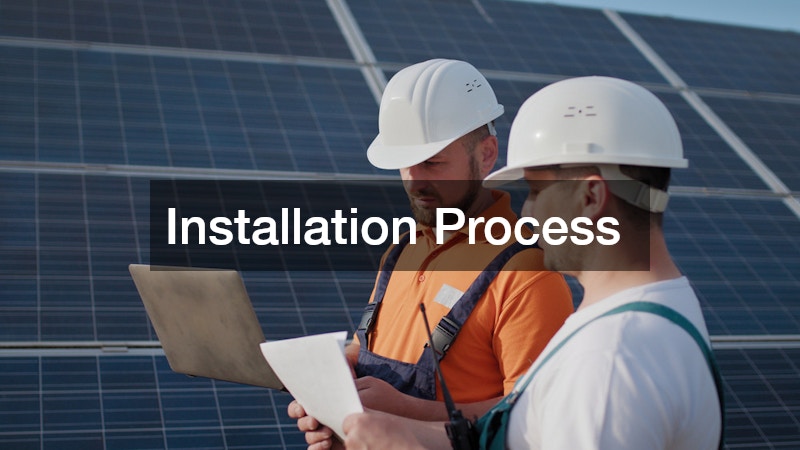
For many homeowners, investing in solar energy can feel both exciting and daunting. Rising electricity costs, combined with growing awareness of climate change and the importance of sustainable living, have made renewable energy a popular consideration for households across Australia. But is the investment really worthwhile? This article explores the key factors homeowners should carefully consider, including the cost-effectiveness of solar panels, environmental impact, energy efficiency, and the installation process, so you can make a well-informed decision that balances your home’s energy needs, your financial goals, and your long-term environmental values.
How Much Does Solar Panel Installation Cost?
Understanding Initial Investment
The upfront cost of installing solar systems can vary depending on the size of the setup, the type of panels, and your household energy needs. While it may require several thousand dollars initially, the long-term savings on electricity bills can offset the initial outlay, making the investment more manageable over time.
Exploring Government Incentives and Rebates
The Australian government provides a range of incentives and rebates to encourage the adoption of renewable energy, including Small-scale Technology Certificates (STCs). These programs can significantly reduce installation costs and improve the financial viability of switching to solar. Understanding local options is essential when calculating overall affordability.
Analysing Long-term Financial Benefits
Beyond immediate savings, renewable energy systems can increase a property’s resale value. Homes with energy-saving features often attract buyers, as they offer reduced bills and sustainable living benefits. Over a typical 20–25-year lifespan, the system can provide notable financial returns, supporting the decision to invest.
What is the Environmental Impact?
Reduction in Carbon Footprint
One of the main advantages of renewable energy is its positive effect on the environment. Generating electricity without greenhouse gas emissions helps lower household carbon footprints, contributing to cleaner air and a more sustainable future.
Lifecycle and Waste Management
Although these systems are environmentally friendly in use, it’s important to consider their entire lifecycle. Modern panels are designed to last decades, and many manufacturers offer recycling programs to responsibly manage end-of-life units.
Comparing Renewable Energy to Traditional Sources
Compared to fossil fuel-generated electricity, solar energy is far cleaner. Conventional power relies on coal or gas, which produce significant emissions, whereas renewable energy offers a sustainable, low-impact alternative for households.
How Do Solar Installations Affect Energy Efficiency?
Assessing Savings and Return on Investment
On-site energy generation from solar panels reduces reliance on the grid, helping homeowners lower their monthly bills. Monitoring production and usage allows households to optimise savings and assess long-term financial benefits.
Efficiency Ratings
Not all systems perform equally. Efficiency ratings show how effectively a system converts sunlight into electricity. Higher-rated setups generate more energy in less space, making them ideal for homes with limited roof area.
Integration with Smart Home Technology
Combining solar systems with smart meters, battery storage and energy management apps can maximise efficiency. These technologies allow homeowners to track energy use, store excess electricity and make the most of renewable power.
Installation Process
Steps Involved
Installation begins with an energy assessment, followed by a tailored design. Panels are mounted on the roof, inverters are connected, and electrical systems are tested. A final inspection ensures everything is safe and operational.
Choosing a Provider
Selecting a reputable installer is key to ensuring a smooth and successful solar energy system installation. Homeowners should look for certified providers with proven experience, positive customer reviews, and a track record of completing projects on time and within budget. A reliable company will not only handle the setup professionally but also provide comprehensive warranties, guidance on maintenance, and ongoing support for any issues that may arise. Taking the time to choose the right installer can save stress, prevent costly mistakes, and ensure your system performs efficiently for many years.
Common Challenges
Some homes may present obstacles, such as shading, roof orientation or structural limitations. Experienced installers can manage these issues, but being aware of potential challenges helps homeowners plan accordingly.
Deciding whether to invest in solar panels requires careful consideration of multiple factors, including upfront cost, environmental impact, energy efficiency and the practicalities of installation. While the initial expense can seem significant, it is important to view it as a long-term investment rather than an immediate outlay. Over time, the reduction in electricity bills, potential government incentives and added property value can make the system financially worthwhile. Beyond the monetary benefits, the environmental advantages are also substantial: generating clean energy reduces reliance on fossil fuels, lowers household carbon emissions, and contributes to a more sustainable future. Homeowners should also weigh the convenience and potential energy independence that comes from producing their own electricity, particularly in regions with high energy prices or frequent grid outages. By taking the time to understand these considerations, evaluate their home’s suitability, and plan the installation carefully, individuals can make a confident, informed choice that supports both their household’s needs and broader environmental goals, ensuring that the investment in renewable energy delivers lasting benefits for years to come.




